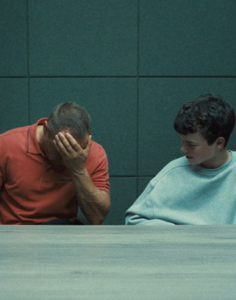Don’t see humans going back to absolute privacy: director Sudeep Kanwal on his movie debut
Mumbai, Jul 25 (PTI) Human beings are nothing but “data” for multinational tech companies, says debutant director Sudeep Kanwal who explores the concept of surveillance and loss of privacy to technology in his first film “Privacy”.
Advancement in technology has its pros and cons and the director said he highlights ill-effects of it in his film, which is headlined by Rajshri Deshpande of “Trial by Fire” fame.
A neo-noir thriller, “Privacy” follows the story of a distressed Mumbai surveillance centre operator (Deshpande), who ignores protocol and begins to investigate incidents happening on her watch.
“The movie is showing how much information you can get from the camera or what they can view, do you really have privacy or not. It is about surveillance cameras but we’ve gone beyond in terms of data privacy. Now, technology has gone to the level where it can predict or shape your behaviour or it can force you to search for certain things.
“Each person has several thousand data points. That’s how tech companies see us as ‘data’, and not as people,” Kanwal, best known for his 2013 short film, “Silent Wave”, told PTI in a virtual interview.
According to the director, in the age of social media, it is hard to stay private but one can try and avoid sharing personal details.
” No matter what you do, you will end up using a browser or end up on some social media platform. There is no getting around it. The only thing you can do is make yourself aware that this is happening, talk to children when it comes to pressure of social media, what to share and what not to share.
“At least, what information we are giving that’s something we could stop. There are cameras (everywhere) so everything is captured and recorded. I don’t see us as humans ever going back to a space where we will have absolute privacy. It’s just not happening, we are going to lose more and more.”
The seed of the idea for “Privacy”, Kanwal said, came from newspaper articles in 2015-16 about cameras being doubled up in Mumbai. He said he was surprised that there was no discussion on how it might affect the privacy of people.
“There were so many articles about how technology is going to solve all the crimes, and it is going to help people, which is all true. But there was no coverage about whether there could be an issue with someone’s privacy, or someone monitoring people. So, that led to the idea of looking into or investigating the other side of technology,” Kanwal, who took about five years on the film, said.
The film is set in Mumbai, which the director refers to as a socio-economically layered city, where a section of people struggle to sleep on streets while the wealthy live in mansions.
Kanwal said he began researching on the film and visited several CCTV control rooms including in Pune, Navi Mumbai and Mumbai’s Crawford market to understand the nitty-gritties of how it works. He added that “Privacy” is not based on any particular incident but is rooted in reality.
“I can’t give plot points away, but there are many incidents that became part of the story. It’s a realistic neo-noir thriller. There are some parts that are fictional but it is based on facts, like how much cameras can see around us, and how many cameras are around us,” he added.
The director is all praise Deshpande and her understanding of the script.
“This is a multi-layered role, and if your lead actor can understand where the character is coming from, what the character is thinking internally, it really makes my job as a director easy on set,” Kanwal said.
“When we were prepping for the role, we were sitting in a cafe, she started watching people and would analyse what they were talking about, etc. If you’re signing up for a role, if you start to internalise, you start to think like the character, it shows on screen,” he added.
Through the eyes of a surveillance centre operator, the movie touches upon themes like mental health and voyeurism.
“Mental health is a big part of this film. What if somebody who has a mental health issue is behind the technology, like what could that lead to. Also, if someone has a stressful job, they should be able to see a shrink or they should be able to get breaks,” Kanwal said.
The bigger theme, according to the director, is how privacy issues are overlooked.
“The way things are right now with social media, like how much we are willing to put out there, and we are not thinking where that might end up or how somebody can use the information,” he said.
Ask him about the release plan of “Privacy” and Kanwal said it might most likely come on an OTT platform.
“So, right now, we’re still in the festival circuit. We’re in South Korea at Bifan. Next month, we are in Sydney and a few other places.
“For about six-seven months, we will give it a festival run and then eventually, it’s going to end up on OTT. I don’t think we’re thinking theatrical but you never know,” he said.
Produced by Navin Shetty and Shlok Sharma of Fundamental Pictures, in association with House of Talent Studio, “Privacy” also features an ensemble cast including Sandesh Kulkarni, Abhilash Thapliyal, Chhaya Kadam, Rushad Rana, and Sagar Salunke.






